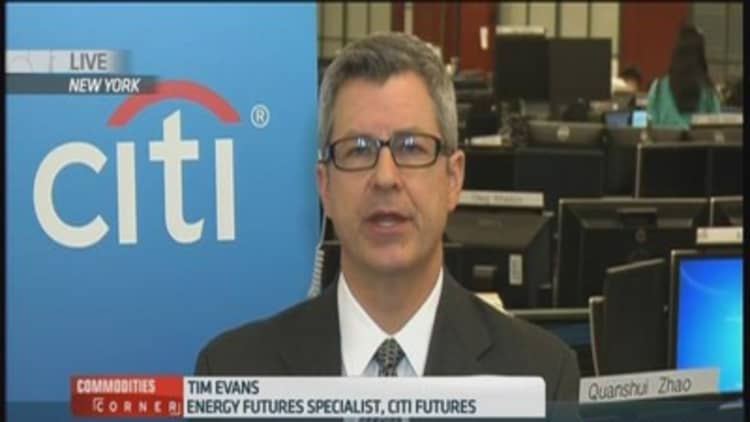
The January contract for U.S. crude oil settled higher on Tuesday after touching a more than five-year low earlier in the session as players sought a sustainable price for oil in a market haunted by oversupply concerns.
WTI futures settled up 77 cents at $63.82 on the Chicago Mercantile Exchange, after swinging between a high of $64.20 and low of $62.25.
Sentiment in oil was aided somewhat by a weaker dollar that boosted the value of commodities denominated in the currency, traders said.
Lower capital expenditure for next year planned by oil companies such as ConocoPhillips also helped as they indicated less drilling and production.
But fear of a further slide after a 40-percent drop in Brent's value since June kept market bulls away, analysts said.
Benchmark was up 49 cents at $66.68 a barrel after falling as low as $65.29, its weakest since September 2009. Brent dropped 4.2 percent or $2.88 on Monday in its third-largest one-day loss this year.
Read MoreVenezuela needs cash, but there's no easy way to get it
Worries about the impact of lower oil prices on the global economy weighed on Wall Street stocks, capping the rebound in crude, as well.
"We're just treading water, if you ask me," Gene McGillian, senior analyst at Tradition Energy in Stamford, Connecticut, said, referring to Tuesday's higher prices for oil.
"There's this idea again that we may have over-extended to the downside and that's why you're seeing some short covering coming in as people try to find a bottom to the six-month slide we've seen now."
Read MoreOil prices tumble further after Morgan Stanley cuts forecast
Supply and demand will set the price of oil in coming months, an oil official from the United Arab Emirates said on Tuesday, the latest sign that Gulf members in the Organization of the Petroleum Exporting Countries were ready to weather lower prices after deciding not to cut output last month.
The tumble in Brent and U.S. crude futures has been exacerbated by price cuts made by Saudi Arabia and Iraq to the oil they sold to the United States and Asia as the largest producers in OPEC tried to compete for market share.
New U.S. projections show oil production from the big three U.S. shale plays should grow by more than 100,000 barrels per day by January, although many shale companies were starting to make deep cuts to spending for next year.
CNBC contributed to this report.

